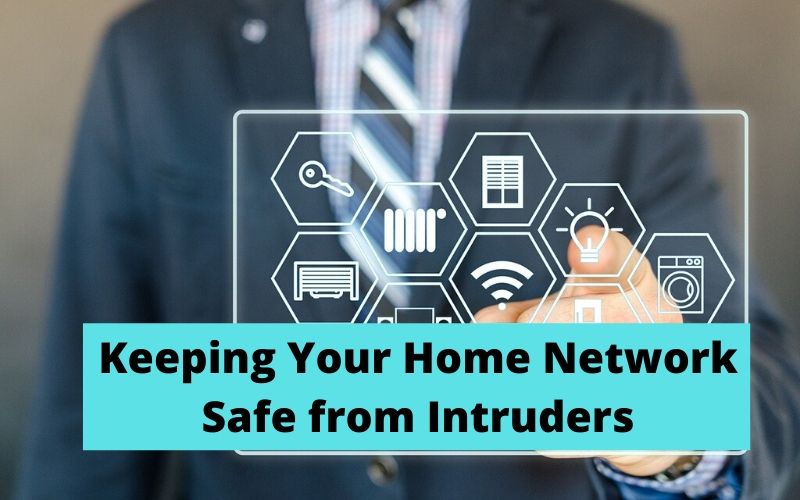In the digital age, there’s no such thing as too much caution. If hackers, data thieves and other online troublemakers are able to find their way onto your home network, the consequences can range from annoying to completely devastating. Luckily, keeping unwelcome intruders off your network doesn’t have to be difficult, costly or time-consuming. A little bit of cybersecurity know-how and a willingness to change your online habits can go a long way in keeping your home network safe.
Enable Password Protection
When it comes to protecting your home network, enabling password protection is the absolute least you can do. However, even though this is a relatively simple process, a staggering number of households fail to take this necessary step. The longer you put off enabling password protection for your home network, the greater the risk to your overall security. Some cybercriminals exclusively target networks that lack password protection, and by failing to utilize it, you’re essentially rolling out the welcome mat for them. With this in mind, make password protection your foremost priority when setting up a new network. Unless someone is in possession of your password, obtaining network access is liable to prove very challenging, if not outright impossible.
Keep in mind that enabling password protection is only half the battle. Creating a password that’s impossible for third parties to guess is every bit as important. When working to create the perfect password, you should opt for absolute nonsense. Using common expressions, turns of phrase or number combinations can dramatically increase the likelihood of your password being guessed by crafty crooks. Furthermore, many hackers are very adept at guessing passwords. For maximum security, take care to change this password on a semi-regular basis, especially if you and your family members consistently allow guests onto your network.
Disable SSID Broadcasting
Disabling SSID broadcasting is another effective way to prevent your home network from attracting unwanted attention. This measure essentially closes off your network to unknown parties and devices by prohibiting the network name from being broadcasted. This means that cybercriminals perusing the various SSIDs in your area won’t even be aware of your network’s existence. If you only want your network to be accessible to members of your household, disabling SSID broadcasting may be just what the doctor ordered.
Just be advised that disabling SSID broadcasting stands to make connecting new devices to your network slightly cumbersome. Any time you wish to connect a previously-unconnected device, you’ll need to temporarily re-enable SSID broadcasting and then shut it off again once the device is connected. While this may be a mild annoyance, it’s well worth the added layer of security you’ll enjoy.
Related: Practical Tips for Ensuring the Security of Your Home
Change Your Router’s Admin Credentials
If a cybercriminal is able to ascertain the type of router you own, the security of your home network stands to be compromised. The vast majority of routers come with preloaded admin credentials, and many households fail to change them, thereby opening themselves to potential security breaches. If you leave the admin credentials as-is, any intruder who’s familiar with your router type will be able to find their way into your administration menu with ease. Fortunately, you can nip this problem in the bud by changing said credentials posthaste. When creating new log-ins, remember to adhere to the same password rules discussed above.
Invest in Network Security Software
To ensure that your home network remains protected for the long haul, invest in first-rate network security software. The right software will provide consistent updates, comprehensive protection and tremendous peace of mind. In addition to software, make a point of investing in a dependable home network security box. This device will act as the perfect complement to good security software, meticulously monitor network activity and stop a plethora of threats in their tracks.
With cybercrime more prevalent than ever, no security-conscious individual can afford to throw caution to the wind. Even if your home network has never been breached by an unwelcome third party, a single security slip up can change that in a heartbeat. Of course, this isn’t to say that home network security should be an arduous undertaking. Exercising basic caution and staying on top of the latest cyber threats can help your home network safe from a broad assortment of uninvited guests.

